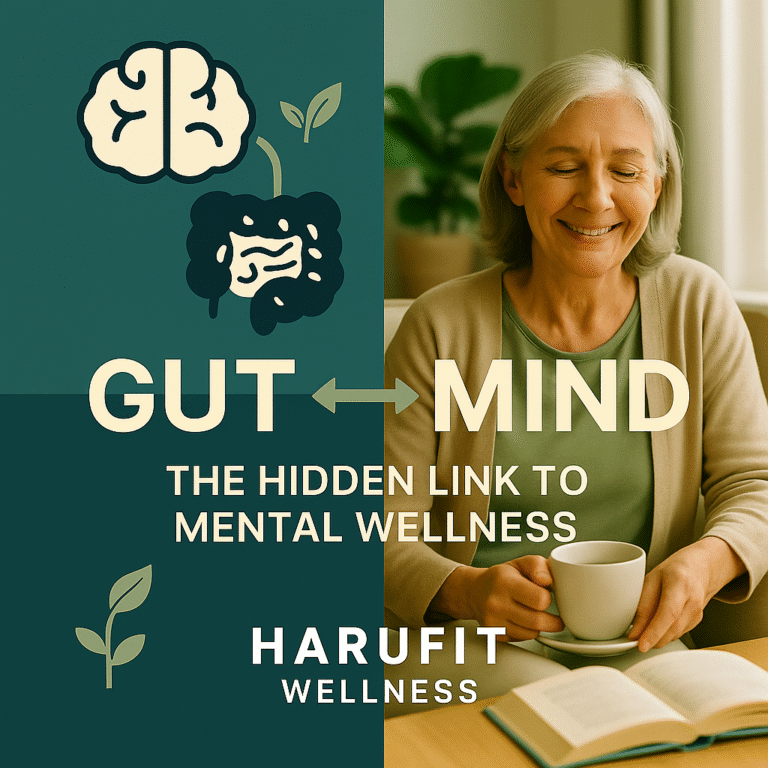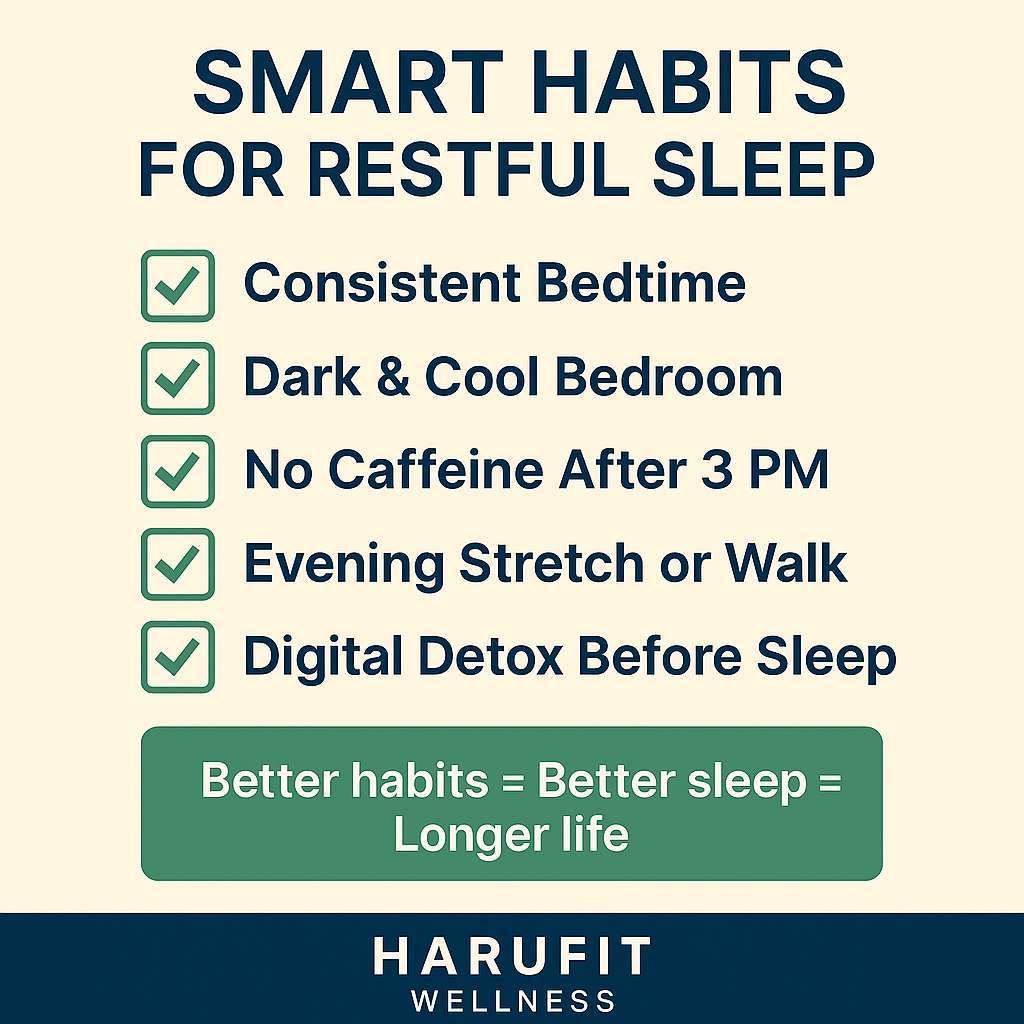The Hidden Connection Between Your Gut and Mental Wellness: What 2025 Research Reveals

Gut ↔ Mind: How digestive health shapes your mental resilience.
As an Amazon Associate, I earn from qualifying purchases.
When Your Mood Starts in Your Stomach
Ever notice how your stomach churns before a big presentation? Or how stress seems to tie your intestines in knots? These aren’t just colorful expressions—they’re glimpses into one of medicine’s most fascinating discoveries.
Recent 2025 studies reveal that your digestive tract houses a complex ecosystem of microorganisms that directly influence your emotional state, stress response, and cognitive function. This isn’t some fringe theory anymore. Major research institutions are proving that the bacteria living in your gut are actively shaping your mental landscape.
Think of it this way: you’re not just feeding yourself when you eat—you’re feeding trillions of microscopic residents who, in return, are constantly sending chemical messages to your brain.

How Your Gut Bacteria Talk to Your Brain
The communication highway between your digestive system and your mind operates through several sophisticated pathways that scientists are only beginning to fully understand.
The Vagus Nerve Highway
Your vagus nerve acts like a biological internet cable, carrying signals directly between your gut and brain. When beneficial bacteria flourish in your intestines, they send calming signals upward. When harmful bacteria dominate, stress signals flood your system.
Neurotransmitter Production Central
Here’s something that might surprise you: approximately 90% of your body’s serotonin—the “happiness chemical”—is manufactured in your gut, not your brain. Your intestinal bacteria also produce GABA (your natural anxiety reducer), dopamine (your motivation molecule), and other mood-regulating compounds.
Inflammation Control Network
Healthy gut bacteria generate short-chain fatty acids and other anti-inflammatory compounds that protect your brain from neuroinflammation—a key factor in depression and anxiety disorders.
Red Flags: When Your Gut-Brain Connection Needs Attention
Your body sends clear signals when this delicate system falls out of balance. Pay attention to these warning signs:
Digestive Issues: Chronic bloating, irregular bowel movements, or new food sensitivities
Mental Fog: Difficulty concentrating, memory lapses, or feeling mentally sluggish
Mood Instability: Unexplained anxiety, irritability, or emotional numbness
Energy Crashes: Persistent fatigue despite adequate sleep
Medication History: Recent antibiotic courses or regular pain medication use
If you’re experiencing several of these simultaneously, your gut microbiome might be crying out for support.
Foods That Heal Both Gut and Mind
Fermented Powerhouses
Yogurt with Live Cultures: Choose varieties containing Lactobacillus and Bifidobacterium strains. Recent clinical trials show these specific bacteria can reduce anxiety symptoms within 2-4 weeks.
Kimchi and Sauerkraut: These fermented vegetables deliver diverse beneficial bacteria along with prebiotic fibers that feed your existing good bacteria.
Kefir: This fermented milk drink contains more bacterial diversity than most yogurts and is easier to digest for those with lactose sensitivity.
Fiber-Rich Brain Foods
Legumes and Lentils: These provide the specific types of fiber that beneficial bacteria transform into mood-stabilizing short-chain fatty acids.
Oats and Quinoa: Complex carbohydrates that support steady neurotransmitter production while feeding beneficial microbes.
Artichokes and Asparagus: Rich in inulin, a prebiotic fiber that selectively nourishes mood-supporting bacteria.
Anti-Inflammatory Champions
Wild-Caught Fatty Fish: Salmon, sardines, and mackerel provide omega-3 fatty acids that strengthen the gut barrier and support neurotransmitter synthesis.
Berries and Dark Leafy Greens: Packed with polyphenols that reduce inflammation along the gut-brain axis.
Extra Virgin Olive Oil: Contains compounds that promote beneficial bacteria growth while protecting against inflammatory damage.
Evidence-Based Supplement Strategies
Probiotics: The Research-Backed Approach
2025 meta-analyses of clinical trials show that multi-strain probiotics containing specific Lactobacillus and Bifidobacterium species can significantly reduce depression and anxiety scores, with effects becoming noticeable after 2-3 weeks of consistent use.
Key Strains to Look For:
- Lactobacillus helveticus R0052
- Bifidobacterium longum R0175
- Lactobacillus rhamnosus GG
Dosage Guidelines: Choose supplements providing 10-50 billion CFU (colony-forming units) daily. Studies show that daily monitoring reveals mood improvements starting around the two-week mark.
For high-quality multi-strain probiotics, consider Garden of Life Dr. Formulated Probiotics -[affiliate links] which contains many of the clinically-studied strains mentioned above.
Or try Culturelle Daily Probiotic -[affiliate links] featuring the well-researched Lactobacillus rhamnosus GG strain.
Prebiotic Support
Psyllium Husk: Provides soluble fiber that beneficial bacteria convert into brain-protective compounds.
Resistant Starch: Found in cooled potatoes and green bananas, this feeds specific bacteria that produce mood-regulating metabolites.
Lifestyle Practices That Strengthen the Gut-Brain Axis
Stress Management as Medicine
Recent research published in Nature Mental Health identified specific biological signatures in the microbiomes of highly stress-resilient individuals. The good news? These patterns can be cultivated through targeted lifestyle practices.
Mindfulness Meditation: Even 10 minutes daily can reduce inflammatory bacteria while promoting beneficial species growth.
Deep Breathing Exercises: Activates the parasympathetic nervous system, which directly supports healthy digestion and microbial balance.
Sleep as Gut Therapy
Quality sleep isn’t just mental restoration—it’s when your gut repairs its protective barrier and beneficial bacteria reproduce most actively.
Aim for 7-8 hours of consistent sleep: Your circadian rhythm directly influences microbial diversity.
Create a wind-down routine: Dim lights and avoid screens 1-2 hours before bed to support both sleep quality and gut health.
Movement for Microbial Diversity
Regular Walking: 30 minutes of moderate exercise increases beneficial bacteria diversity and improves gut motility.
Yoga: Combines stress reduction with gentle abdominal massage that supports digestive health.
Strength Training: Moderate resistance exercise promotes anti-inflammatory bacteria growth.
What to Eliminate for Optimal Gut-Brain Function
Ultra-Processed Foods: These industrial food products feed pathogenic bacteria while starving beneficial microbes, creating a hostile intestinal environment.
Artificial Sweeteners: Emerging 2025 studies reveal that certain synthetic sweeteners can disrupt microbiome balance and actually amplify anxiety symptoms rather than helping them.
Excessive Alcohol Consumption: Regular drinking damages your intestinal lining and decimates beneficial bacteria diversity, disrupting the entire gut-brain communication system.
Unnecessary Antibiotic Use: While sometimes medically essential, frequent antibiotic courses can devastate your microbial ecosystem and take months to fully recover.
The Revolutionary Future of Gut-Brain Medicine
Scientists are now engineering “psychobiotics”—precision bacterial strains specifically designed to treat mental health conditions. Early human trials show remarkable results for treatment-resistant depression and chronic anxiety disorders.
Additionally, researchers are developing personalized microbiome therapies that could be tailored to your unique genetic profile and existing bacterial composition, potentially revolutionizing mental health treatment.
Your Strategic Action Plan
Start with targeted, sustainable changes rather than overwhelming your system. Select 2-3 evidence-based strategies from this guide and maintain them consistently for at least 30 days before adding additional interventions.
Consider collaborating with a healthcare provider who understands the gut-brain axis, particularly if you’re managing persistent mental health challenges alongside digestive concerns.
The research is unequivocal: optimizing your gut health represents one of the most powerful interventions you can make for your mental wellness. Your microbiome didn’t become imbalanced overnight, and restoring it requires patience and strategic consistency. But the payoff—improved mood, better stress resilience, and enhanced cognitive function—makes this journey absolutely worth it.
Sources: This article synthesizes findings from peer-reviewed research published in Nature Mental Health, Clinical Nutrition, and the Journal of Affective Disorders, with emphasis on 2025 clinical trials and meta-analyses examining the gut-brain axis.
Comments